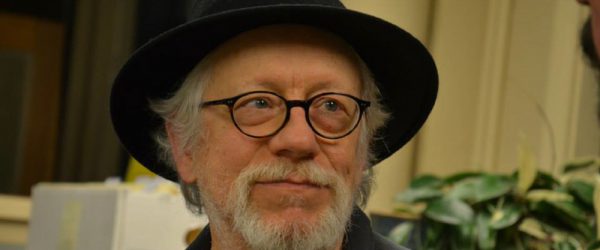
Interview with John M. Bennett
Artists, Interviews, Uncategorized, WritersJohn M. Bennett is incredible. He’s an old school experimental writer. He takes no prisoners. He looks for new ways of expressing his ideas. And he finds anywhere he looks. His work ethic is insane and he can be considered to be “the man” in realm of experimental literature. He’s a go-to guy if you need to know something about being experimental all the time and not being ridiculous. His body of work is an example of how it is possible to steadily move forward for more than five decades without falling into self-repetition or being boring.
His online HQ is here. You can purchase some of his books here.
And here’s an interview with John that will help you understand his ways of work and life.
***
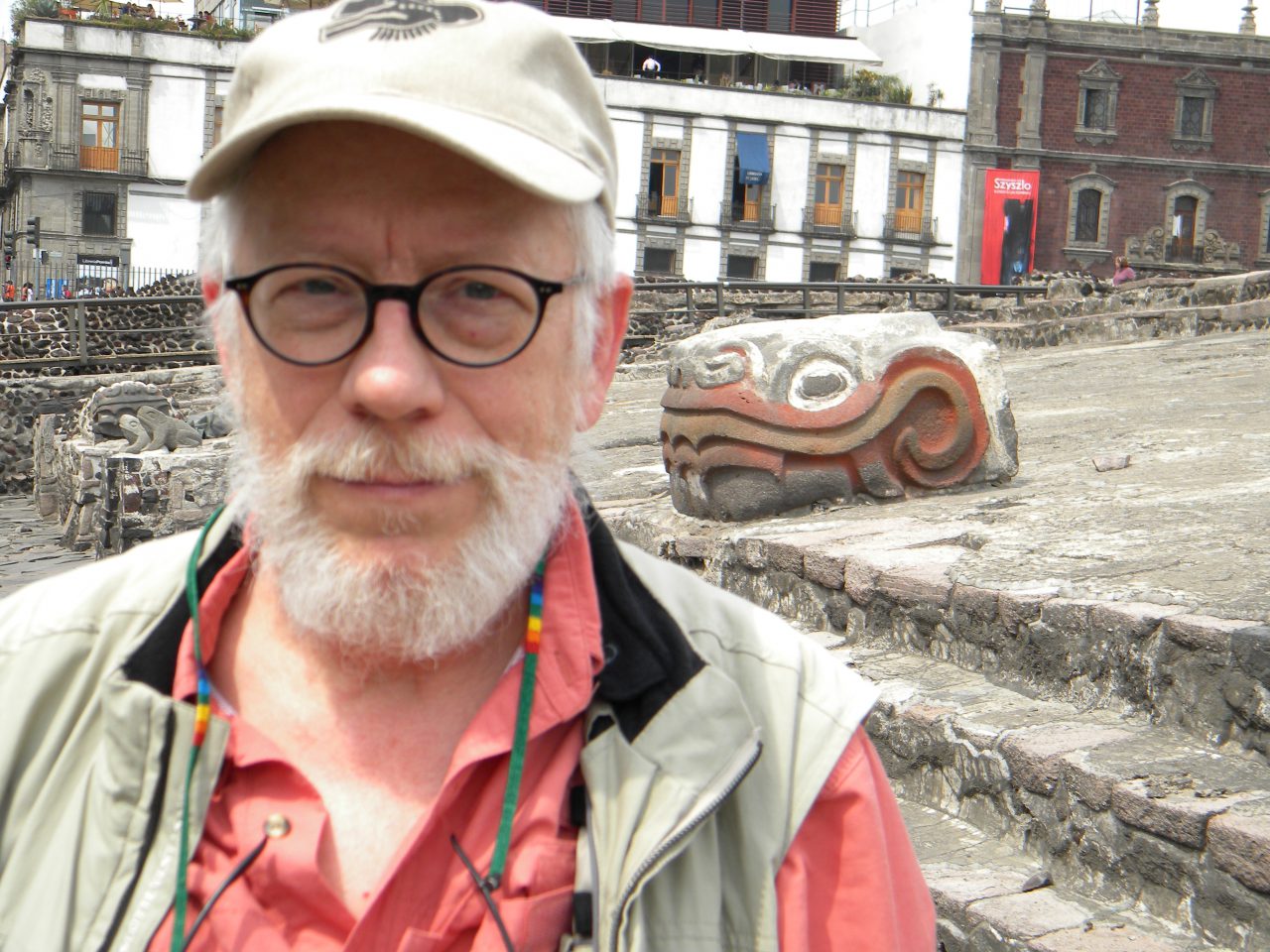
VB: For a start. Let’s make it funny. Can You blurb yourself?
JB: I confess I have done that; it’s kind of fun, pretending I’m someone else (something I’ve done as an artist as well). But of course I prefer someone else to write blurbs for me. Don’t ask me for examples, I won’t tell you!
(some time later)
VB: Isn’t that funny – to talk about such intimate thing as creative act? “Dancing about architecture”-quote brought an idea that it’s more like talking about something that is not exactly a thing but it is but you can’t actually dig it that way. What do you think about it?
JB: Since High School I’ve been interested in trying to understand the creative process. and have kept my drafts and versions of poems and notes toward that end. I still don’t fully understand it, but I know it’s something that involves training many parts of the brain and body, most of them unconscious, so that they all come together to create something, to do something, to be something.
VB: What training techniques have you tried over the years?
JB: Everything I write is a kind of training.
VB: Are there any completely pointless but fun to do practices?
JB: It’s all “pointless”, isn’t it? And “fun” is always at least some part of what I do.
VB: What do you think about overall practice of giving an interviews? Is it important for you? What do you want to achieve by it? Is there a need to express your ideas that way? a way to express your artist statements?
JB: An interview is mainly a way for me to try to explain certain things I do in my work, in a general way, so that people can maybe approach my work with some kind of understanding, or some kind of way to approach understanding. Complete understanding is not possible, or even desirable. Sometimes I find myself saying things I didn’t expect, but it rarely has much effect on what I do in my work.
VB: Is there any possibility to escape self-serious and unintentionally funny tone?
JB: Humor is a way of creating a new perspective on something, a multiplying of one’s point of view. As if another voice were speaking, in addition to “your own”. The more voices in a poem, the better!
VB: Can interview somehow help you to solve some creative problems inside your work?
JB: It can help me understand some things in a more objective-seeming way, but it’s doesn’t solve any creative problems. Creative problems are not something you want to “solve”, anyway: if something is a “problem”, it’s something that has meanings and value, so you should work with it and let it exist.
***
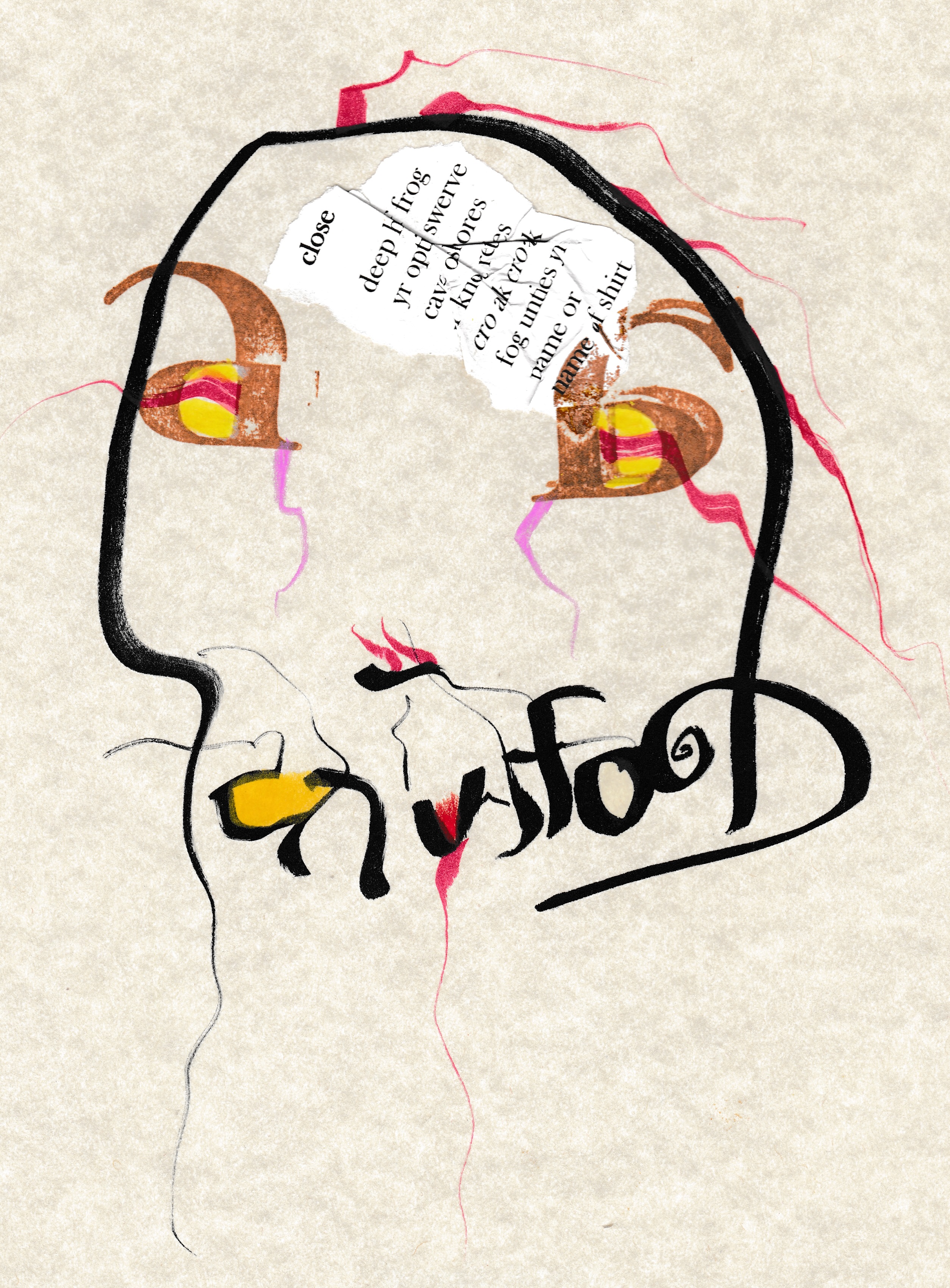
VB: How is it feels to be a writer over the decades – against all odds? How age affects your working habits? Is there anything strange you’ve noticed about?
JB: When I was much younger, I envisioned myself as an old writer calmly and surely writing some of my best work. The reality is a bit different: I do think I’m doing some of my best work, but there’s nothing calm or sure about it. In other words, the process is basically the same.
It is hard work, every single poem I start to write strikes me as being a piece of crap, and there’s still a lot of stress about that. I have learned, however, to ignore those feelings, and write anyway, because it usually isn’t crap at all. And once I get started on the poem, I get really absorbed by it and I’m in a part of my brain I can’t reach any other way. Getting there is why I write; without that experience I get very depressed and anxious.
VB: What has changed in your method through the years?
JB: One thing that for sure is different is that I have developed a lot of skill, have developed many different voices and ways of writing, and I can call on all of that without thinking about it. I enjoy exercising those skills, it means I can focus on the “content” or voice or self of the poem, rather than the technical details.
VB: Ok. With that out of the way – can you describe your more or less ordinary working session?
JB: I sit down before some blank paper, usually a blank notebook, and just start, whatever comes out is what I work with and continue. I write first by hand. Then type into a computer (I used to use a typewriter!). Then I will revise. I usually finish, or abandon, the poem during the same day I started it. But not always. When it comes time to assemble poems in a book, I might make further small revisions here and there.
VB: What are the main phases of your creative sessions? Do you perform warm-ups or doodling sessions? Or you just jump into the fire? Do you know when and where to stop? Is it intuitive process or there is some kind of discipline? Was is it different when you started years ago?
JB: I just jump in and start, ignoring my doubts and feelings of idiocy. This takes a lot of discipline, developed over many years.
VB: What is your primary gear?
JB: Ink pen, blank notebooks, computer, printer, binders. I always print out what I write, as I basically distrust computers.
VB: How do you work with notes? Is there any specific method of assembling? Do you have any specific way of starting the session?
JB: Sometimes I make brief notes of things that occur to me when I can’t sit down and write. I will sometimes use these as the start of a poem. There are some pieces I do that involve rapid selection and re-writing of texts of others, as I have done recently quite often with work by Jim Leftwich and Ivan Argüelles. As to a way of starting, I just start; whatever comes out, whatever is in my head. No planning ahead, except occasionally with regard to forms, but not content. As to revision, that varies: sometimes I revise not at all, other times I revise a lot. Revising is a kind of meditation, a way of hearing/listing to the poem and exploring it.
VB: What do you think about compulsive note-taking – notes for notes sake?
JB: I write poetry compulsively, you might say, if you want to use that psycho-babble term. The poems are my notes, perhaps.
VB: Have you ever considered constructing a whole new piece out of your notes? Or you just attach them to the planned piece?
JB: I don’t take very many notes. When I do, they are fragments that get incorporated into something I write, like other fragments from my life and my mind’s life.
VB: What do you think about working chaos? Is it a thing for you? Have you ever experienced a chaotic episode in which lots of stuff was created by accident?
JB: In a way everything is chaos; my work is a way of trying to corral or channel some of that chaos into forms that resonate with me in some way. So the poems are little bits of chaos. Reality is chaos, but it makes sense if it can be seen from the right perspective.
VB: What comes after you have finished the piece?
JB: I go outside and fiddle around in my garden.
***
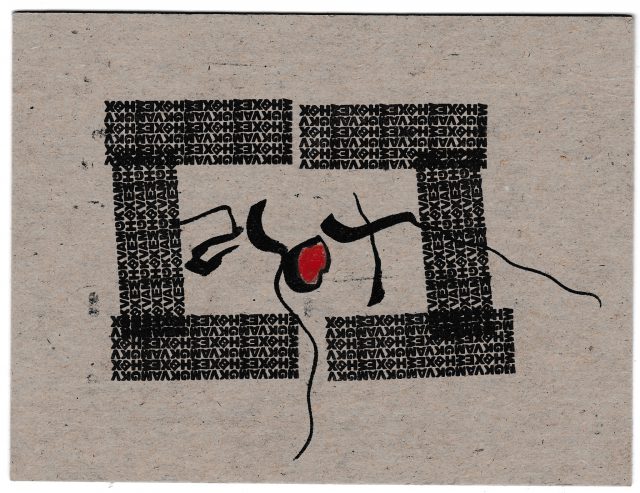
VB: Aside from English you also write in Spanish – can you tell me what gives you writing in another language? For me it’s another perspective and it greatly affected my feeling of mother language. Can you share your experience?
JB: Language is an embodiment of a culture, and knowing (and writing) in more than one language enriches all the languages you know. Every word in every language resonates with all other words in all other languages, and the more languages you know the more you can operate within those swarming and endless zones of resonance. Much of what I write in Spanish, say (I also write a bit in French and other languages), is written in the context of a different culture, and in a different literary culture/history. Of course, the different literary cultures I inhabit (or that inhabit me) blend together to some degree, creating a hybrid culture. All cultures are hybrids, it must be said, and are constantly changing, like language itself.
VB: Are you translating your stuff or you write it straight in a different language?
JB: It is impossible to translate poetry. I write directly in whatever language I need to in order to say something close to what I’m trying to say. I did an exercise of trying to translate a book of mine, written mostly in English with some Spanish, into a version with mostly Spanish with some English. What I found myself doing was less a translation than a re-writing. Both versions were published as CANTAR DEL HUFF, 2006.
VB: How do you react and response to reviews and criticism – do you take it seriously? Have you caught any idea for a piece from a reviews – or while reviewing someone else’s work?
JB: Reviews and studies of my work are interesting because they tend to confirm my belief that poetry – and art in general – is a kind of mirror in which one sees oneself. That is, another person’s take on my work is always very different from my own, and I enjoy that.
***
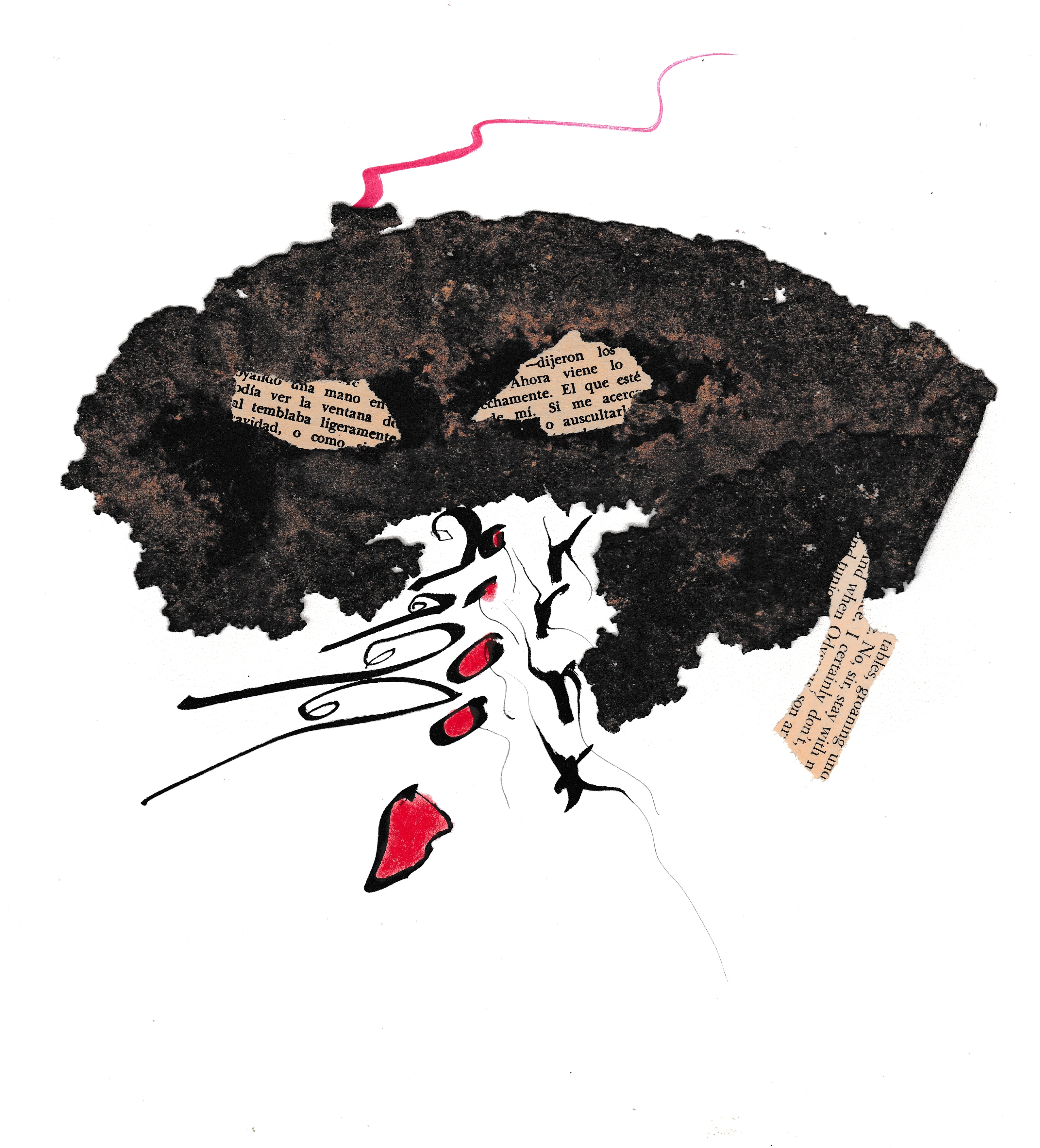
VB: Can you tell me more about your history of publishing endeavors? When you have realized that you need to do that? What was the point of entry of you?
JB: Long story. I started publishing because I was frustrated at not being able to get others to publish my stuff. Then as things developed I started publishing not only my own work but the work of others, focusing on work that was otherwise unpublishable, but that I thought had to be in print. Now I can generally get others to publish much of my own work, but still like to publish some of my own things, because I like having complete control over some things. Though it is also true that I very much enjoy seeing how others treat and present my work.
VB: Is editing for you a balancing act? Some editors trust the authors and their m.o. and some like to assist them to improve their works. Have you developed your own way of dealing with authors? Can you describe it?
JB: Every author is a unique case, and I treat them all differently. Though in general I tend to not try to intervene much, if at all, in what they do.
VB: What are your differences between experiences as an artist and as an editor?
JB: Being an editor and curator has helped sharpen my ability to see what’s good and what isn’t, even for my own work.
VB: Is editing of your own writing is a natural continuation of it?
JB: Yes. Sometimes I revise or edit a lot over a day or 2 or 3, sometimes no revision is needed. Then in a year or more, when I am compiling a book, I may revise a few poems a very little bit.
VB: In your opinion – does editing present any new possibilities for the piece? In a strategic way – can it bring something new to the table that late in the game? Or such manipulations can harm the piece?
JB: Sometimes it can bring something new, and sometimes it can destroy the poem. In general, though, a poem is a trace of a specific psychic moment and shouldn’t be changed a lot. I just write a new poem to find new possibilities.
***
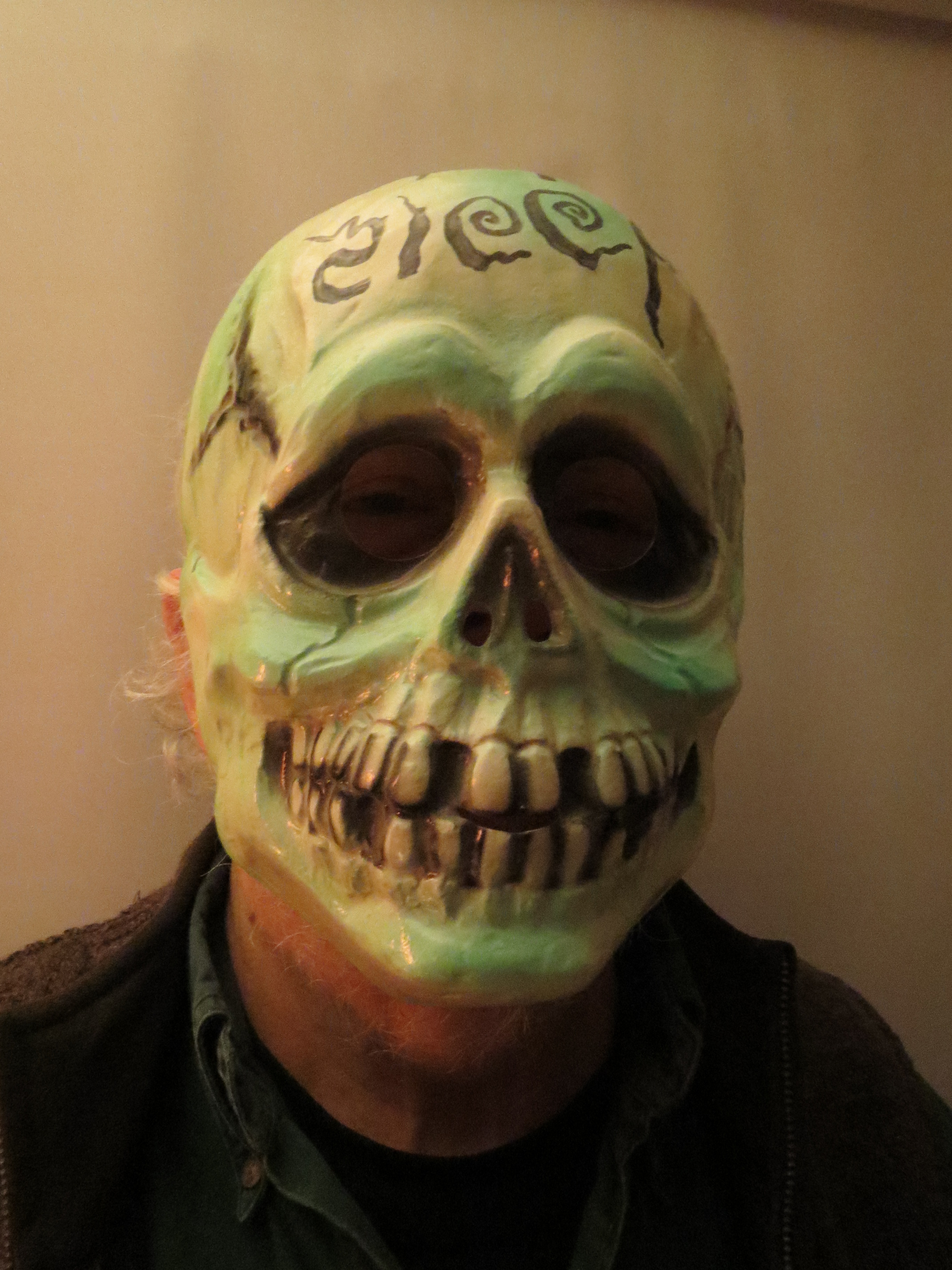
VB: As for conclusion, I would to try give the reader an opportunity to unleash their imagination. Can you give me an imaginary setlist for readers to play in their heads?
JB: It may be something like that:
- J.S. Bach, Der Kunst der Fuge
- Scarlatti, Keyboard Sonatas
- Monteverdi, L’Orfeo
- Vallejo, Trilce
- Chopin, Preludes
In case of poetry it may be something like that:






















